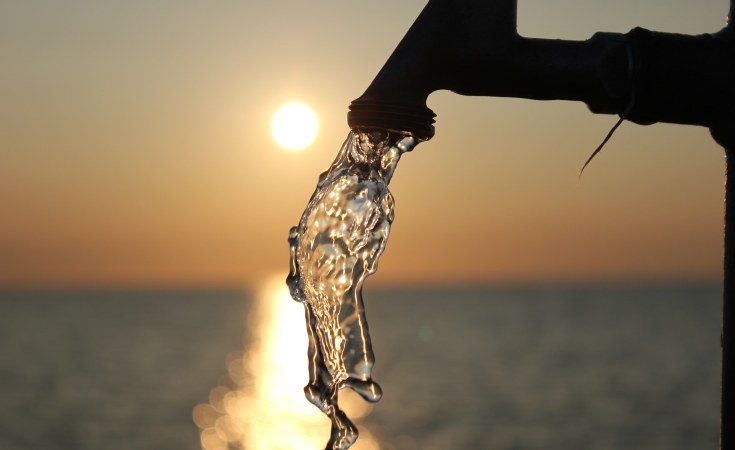Water and Sanitation Minister Senzo Mchunu has reaffirmed the department's commitment to continue efforts to ensure that citizens receive quality water services.
This comes as the department released the 2023 full Blue Drop and No Drop reports on drinking water quality, provision and wastewater management in the country.
The reports were released simultaneously with the awards for the best performing municipalities ceremony held on Tuesday to recognise the top-performing Water Services Authorities (WSAs) of 2023.
The Blue Drop Report evaluated all 958 water supply systems (WSSs) across 144 water services authorities. The evaluations considered factors such as infrastructure conditions, maintenance, operation, treatment processes, and staff expertise.
The No Drop Report focused on water losses and non-revenue water in all municipalities in the country.
The reports revealed a decline in drinking water quality and an increase in non-revenue water since the last reports issued in 2014.
Decline in water supply systems
According to the Blue Drop Report, only 26 water supply systems were able to achieve scores above 95% and qualified for the prestigious Blue Drop Certification. This is an overall decline from 2014, where 44 WSSs were awarded Blue Drop status.
The report revealed that the number of water supply systems in a critical state of performance increased from 174 in 2014 to 277 in 2023, indicating a significant decline in excellence between 2014 and 2023.
Drinking water systems in the major metropolitan areas were found to be generally performing well in terms of the Blue Drop key performance areas, with Gauteng having the highest percentage of drinking water systems with excellent or good performance (62%), followed by the Western Cape (50%).
In Gauteng, three municipalities have received National Blue Drop Certification.
These include Meyerton water supply system (provided by Rand Water Bulk Water Service) in Midvaal Local Municipality; Ekurhuleni water supply systems (provided by Rand Water Bulk Service), and the Greater Johannesburg water supply system (provided by Rand Water Bulk water supply systems).
"The water supply disruptions, which have been experienced in Gauteng in recent months, are caused by the demand for treated water occasionally exceeding the available supply of treated water," Mchunu said.
The Northern Cape has the highest percentage of drinking water systems with poor or critical performance (87%), and this has deteriorated from 48% in 2014.
In the Free State, the percentage of drinking water systems with poor or critical performance has also deteriorated markedly between 2014 (31%) and 2023 (59%).
Based on water quality tests carried out by municipalities during the 2021/2022 municipal financial year, the report showed that 54% of water supply systems achieved excellent or good microbiological water quality compliance, while 46% achieved poor or bad microbiological water quality compliance.
While only 5% of water supply systems achieved poor or bad microbiological water quality compliance in 2014, the report noted a generally good drinking water quality in the major metropolitan areas.
The Blue Drop assessment further found that 85% of drinking water systems were in an average or better infrastructure condition. It noted that Gauteng has the lowest shortfalls of qualified staff, while the Northern Cape has the highest shortfalls of qualified staff.
Increase in non-revenue water
The 2023 No Drop assessment found that the national non-revenue water (NRW) increased from 37% in 2014 to 47% in 2023. The international average for non-revenue water is 30%.
The report attributed this to physical losses, including water leaking out of pipes above or underground, poorly functioning or non-existent water meters, illegal connections, and poor billing and revenue collection.
Four WSAs scored more than 90% and qualified for the prestigious No Drop Certification.
In order to reduce non-revenue water, Mchunu said municipalities need to improve the operation and maintenance of their infrastructure; repair leaks; improve metering, billing, revenue collection and debtor management; improve pressure management, and engage in community education and awareness, among other measures.
Mchunu said the department is working collaboratively with the Department of Cooperative Governance and Traditional Affairs, including the Municipal Infrastructure Agency, Department of Human Settlements and National Treasury to address the findings of the Drop reports, and achieve the Sustainable Development Goals 6 (SDG6) by 2030.
"Action plans have been developed to address the key findings in the worst performing municipalities. These action plans include the provision of grants worth more than R20 billion per annum to municipalities, technical and engineering support and assistance, capacity building and training, and financial management advice and support," the Minister said.


